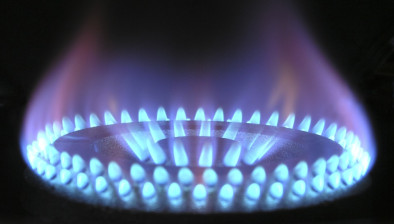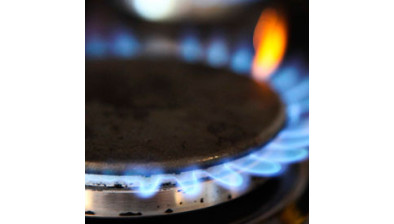Energy price cap to increase by 1.2% in January

The energy price cap is set to increase by 1.2% starting in January, energy regulator Ofgem confirmed today.
The change to the price cap – which sets a maximum rate per unit and standing charge that can be billed to customers for their energy use – will rise by £21 for an average household per year or around £1.75 a month for the period covering January-March 2025.
For an average household paying by Direct Debit for dual fuel this equates to £1,738 per year.
While this is 10% (£190) cheaper compared to January-March 2024 (£1,928), and 57.2% (£2,321) less than the energy crisis (January-March 2023), charities responding to the announcement have warned that “any increase in energy costs is bad news”.
Derek Mitchell, CEO at Citizens Advice Scotland, said: “Energy prices remain too high and force people into impossible situations. It limits choices when it comes to bills and household spending, often leading to people rationing or stopping the use of heating completely.
“As the days get colder and darker, especially over the past week, thousands across Scotland face the misery of living in a cold home, impacting both their physical and mental wellbeing.
“Across our network, the average person seeking debt advice has £2,500 of energy-related debt with many on low incomes. And unfortunately, our energy markets are broken. Urgent and targeted solutions including a social tariff and debt write off schemes are needed to help people not only stay warm but have a realistic way to pay debts back.”
Advice Direct Scotland, which runs the national energy advice service energyadvice.scot, said the persistently high costs would “undoubtedly force more people into debt”.
Previous forecasts have suggested the price cap will not fall again until April next year, with bills remaining far higher than they were when the energy crisis hit in autumn 2021.
The charity said the persistently high cost of gas and electricity underlined why the UK needs a social energy tariff, which would automatically put the most vulnerable customers on the cheapest deals.
It has been campaigning for the UK Government to work with energy suppliers to introduce the policy, and in September was invited to contribute to a working group on the issue by the Scottish Government.
Eligibility for such a tariff could be determined by factors such as whether members of a household are in receipt of benefits or are on low incomes.
Andrew Bartlett, chief executive of Advice Direct Scotland, said: “At the end of a week when temperatures have plummeted across Scotland and people’s heating bills have soared, the news that energy is going to get even more expensive in January will come as a shock to many struggling households.
“The coming increase might be relatively modest, but in the wake of the sharp rise to the price cap in October and the ongoing cost-of-living crisis, it will undoubtedly force more people into debt.
“This situation cannot continue, which is why we have been calling for a UK-wide social energy tariff, which would go some way to fixing the country’s broken energy market and lifting people out of fuel poverty.
“Our view is that the most vulnerable households should automatically be placed on the cheapest energy deal through an opt-out system, so they do not have to take any action to benefit.”
Consumer Scotland head of energy Kate Morrison added: “Although lower than at the peak of the energy crisis, energy bills are still historically high and will rise further in January.
“One of the legacies of the past two years of high bills has been a growth of energy debt and arrears in the GB domestic market which now exceeds £3.6bn – a record high – and bill increases will impact further on levels of debt
“This will be a challenging winter for consumers, particularly those with higher energy needs including disabled people and those with health conditions.
“There is a need for governments to design and deliver better targeted energy affordability support for consumers, particularly given current levels of debt and ongoing pressure on household budgets.”
The increase announcement comes as analysis by Ofgem shows around 1.5 million households switched tariff over the past three months. The regulator is urging customers to take advantage of the rising choice in the market and look for the best deal to help keep their household bills down. By switching, savings of up to £140 are currently available, it said.
Following a call by Ofgem in August for suppliers to offer more choice with low and no-standing charge tariffs, there has been an increase in the number of suppliers offering these kinds of deals. According to Ofgem, there are currently eight available that are at least 10% below the level set in the price cap.
However, while these come with a lower standing charge, they do have a higher unit rate. They could benefit customers with lower energy usage but will not work for everyone so consumers should carefully consider what works for them.
Tim Jarvis, director general of markets at Ofgem, said: “While today’s change means the cap has remained relatively stable, we understand that the cost of energy remains a challenge for too many households. However, with more tariffs coming into the market, there are ways for customers to bring their bill down so please shop around and look at all the options.
“Our reliance on volatile international markets - which are affected by factors such as events in Russia and the Middle East – means the cost of energy will continue to fluctuate. So it’s more important than ever to stay focused on building a renewable, home-grown energy system to bring costs down and give households stability.
“In the short term though, anyone struggling with bills should speak to their supplier to make sure they’re getting the help they need and look around to make sure they’re on the best, most affordable deal for them.”








